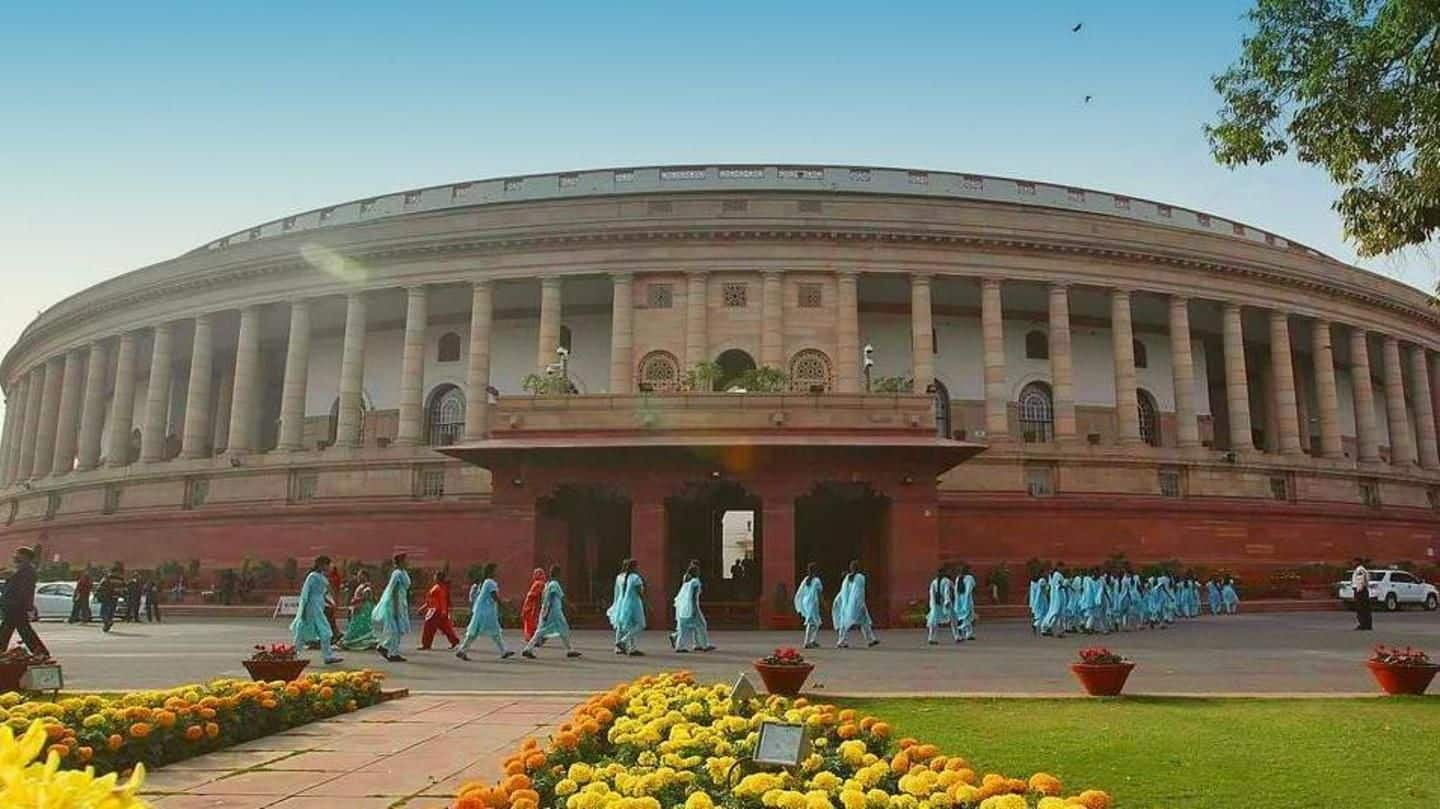
Parliament Monsoon session: What to expect
What's the story
The Monsoon session of the Parliament begins today, July 18, and a lot of pending bills are expected to be discussed. However, considering the dismal track record of the Lok Sabha and Rajya Sabha of late, it's unclear how much actual work will be done. Additionally, with a no-confidence motion on the cards, the Monsoon session promises to be a stormy one. Here's more.
Key bills
Key bills, ordinances to be discussed during the Monsoon session
Over the next 18 sessions, the Parliament is expected to discuss 68 pending bills, of which 25 are listed for consideration and passage. Key bills and ordinances to be discussed include the Fugitive Economic Offenders Bill, 2018, The Muslim Women (Protection of Rights on Marriage) Bill, 2017, The Criminal Law (Amendment) Ordinance, 2018, and The Insolvency and Bankruptcy Code (Amendment) Ordinance, 2018.
Other bills
New bills to be introduced during the Monsoon session too
Other notable bills and ordinances to be discussed include The National Medical Commission Bill, 2017, The Constitution (123rd Amendment) Bill, 2017, and The Commercial Courts, Commercial Division, and Commercial Appellate Division of High Courts (Amendment) Ordinance, 2018. New ones to be introduced include The Dam Safety Bill, 2018, The DNA Profiling Bill, 2018, and the Higher Education Commission of India Bill, 2018.
Track record
The dismal track record of the current Parliament
While the Parliament is expected to discuss the aforementioned bills, among others, efficiency isn't expected. An analysis of the 14 preceding sessions of the current Parliament (2014 onwards), has shown that the Lok Sabha only dedicated 1% of time allotted to legislative affairs, while the Rajya Sabha dedicated only 6% of its allotted time to legislation. The rest were lost to protests and adjournments.
Do you know?
It seems like our legislators are shirking their responsibilities
Notably, over the years, the number of annual sittings in both the Lok Sabha and the Rajya Sabha has shrunk to almost half. Compared to the 125-150 annual sittings in the 1950s-60s, the past two decades have seen 60-70 sittings only.
No-confidence
The Congress is leading a no-confidence motion against the NDA
Additionally, with a no-confidence charge being led by the Congress in conjunction with other Opposition parties, it's unlikely that the Parliament's dismal productivity will improve. Chandrababu Naidu-led TDP has already given notification for a no-confidence motion, while the Congress is trying to garner additional support. While the motion doesn't endanger the NDA realistically, it is being seen as an opportunity to make a point.
Stand-off
BJP-led government to face no-confidence motion, stand-off likely to continue
Reportedly, according to parliamentary affairs minister Ananth Kumar, the BJP-led government will face the no-confidence motion. Meanwhile, PM Modi has assured the Opposition that his government is willing to discuss any issue raised by any party or member. Given the Opposition's stance, it's likely that the stand-off between the two sides, which resulted in poor productivity during the Budget session, is likely to continue.